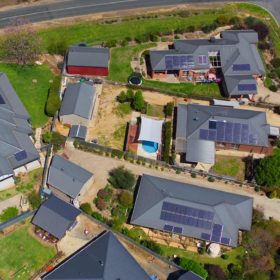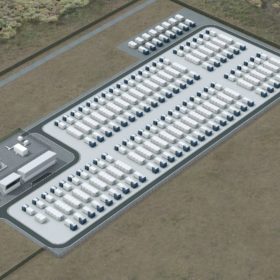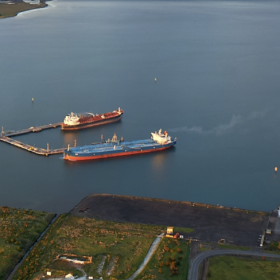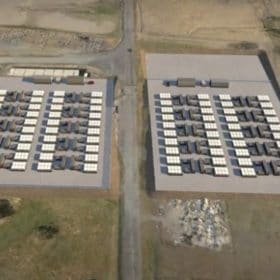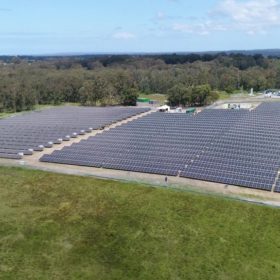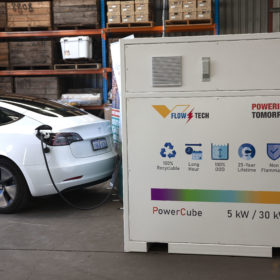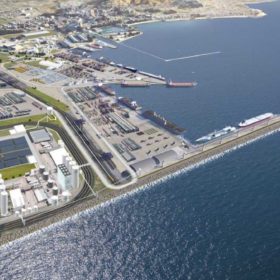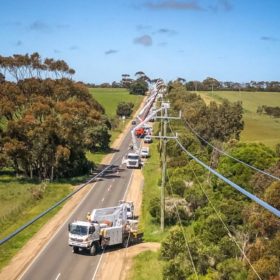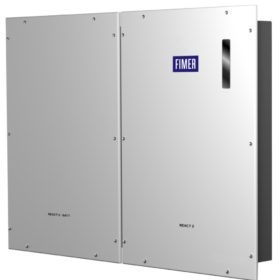WA introduces remote solar switch off, following SA model
Western Australia has become the second state to give network operators the capacity to remotely switch off residential solar systems as an emergency grid stability mechanism.
Grid-forming big battery breaks ground in South Australia
AGL has “broken ground” at Torrens Island power station in preparation for the construction of its 250 MW/250 MWh battery which has drawn interest for being the largest planned grid-forming battery in the world.
GeelongPort invests $100m to establish hydrogen hub, partnering with CAC-H2
Geelong Port, one of Australia’s major ports southwest of Melbourne, today announced it will invest $100 million to establish a hydrogen hub in partnership with biomass gasification outfit CAC-H2.
AGL secures planning approval for proposed Loy Yang big battery
Australia’s largest energy gen-tailer AGL says it has received approval for a 200 MW/800 MWh grid-scale battery to be developed at the site of its coal-fired Loy Yang power station in Victoria’s Latrobe Valley.
Shoalhaven solar farm serves as roadmap for others say developers
The developers of a $5 million community-driven solar farm in the New South Wales Shoalhaven region believe the 3.9 MWp facility can serve as a model for other communities looking to launch their own renewable projects.
VSUN tests flow battery technology with standalone EV charger
Australian energy storage company VSUN Energy claims to have identified the ‘missing piece of the renewable energy jigsaw’ after successfully testing a standalone electric vehicle battery charger using solar PV supplied by a vanadium redox flow battery.
Renewables to drive down prices as fossil-fuel generators exit NEM
Ongoing growth in both renewable generation capacity, including rooftop solar, large-scale wind and solar, and dispatchable power in the form of big batteries is expected to drive down household power bills across the National Electricity Market in the coming years despite the impending closure of several of Australia’s ageing fossil-fuel fired power stations.
States stake claim for green hydrogen as Australia partners with Germany on project
Australian governments and industry have embraced the potential of green hydrogen with a flurry of project announcements, including the Western Australian Government providing almost $120 million to establish two renewable hydrogen hubs, Edify Energy signing of Memorandum of Understanding to explore the feasibility of establishing a hydrogen export facility in Queensland, and the Federal Government collaborate with Germany on a new initiative designed to accelerate the development of Australia’s green hydrogen industry.
Spark $5.2bn takeover secures foreign investment approval
Spark Infrastructure looks set to be sold off with the Foreign Investment Review Board giving its tick of approval for a North American consortium led by private equity giant Kohlberg Kravis Roberts to acquire the Australian electricity network operator.
Consistency shines bright in battery storage testing
Independent battery performance and reliability tester ITP Renewables has been running its trial of solar storage batteries since 2016. Over the years one of the broad conclusions to be drawn is that home storage systems are by no means reliable across the board. However, some few systems stand out, including Fimer’s hybrid solar inverter and storage solution, the React 2.
